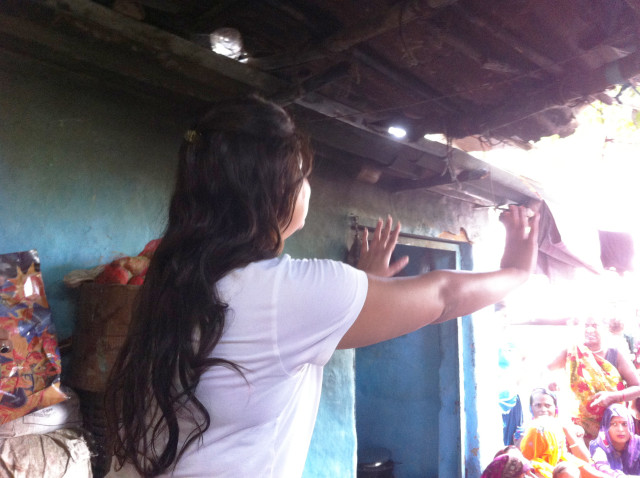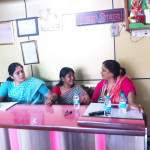The Crisis Management Centre, Vasant Kunj organized an introductory community development meeting at Coolie Camp which was facilitated by Mehak who is a counselor at the centre. Centre for Social Research believes that the communities are capable of helping themselves. They have the capacity to identify their own problems and find solutions. The communities are capable of a lot, but they can’t do it alone. Keeping this in mind CSR continuously engages with the communities and provides them with a platform where the women can voice their opinions and discuss their issues. A meeting was held on 25th August 2015 with the women of Coolie Camp. The meeting was made possible with the help of Paramjeet and Suresh who were community leaders and also provided us with a space to organize our meeting.


The training started with Mehak introducing the development work that CSR has been doing since the past 32 years with young girls and women. She began by explaining the binary of sex and gender. Sex is biological whereas gender is social. Gender is a social construction and is relational. The gender relation is unequal and exploitative. Gender informs the behavior of the people in a society. The societal hegemonic pattern dictates the familial structure as well. The discrimination towards female sex is internalized and perpetuated. The children who witness such aberrant behavior further perform the same roles and perpetuate the patriarchal dominating behavior. She substantiated her point with the difference in the upbringing of a male child and a female child. The differentiation and discrimination starts at birth, a boy is given a gun to play with whereas a girl is given a toy. The upbringing of a girl child is very different where a girl is restricted to the private sphere that is the home and is made to do household chores and is often denied education. Whereas a male child is conditioned to move out to the public sphere, he is rarely denied education and later becomes the provider as opposed to women who are caregivers.
A senior lady resident of coolie camp complained that the parents are at fault. They discriminate between their own children and restrict the girls to household chores. She said proudly that her daughter drives and goes out to work. She also said that the responsibility is on the mother to not repeat the same oppression that she was subjected to. The mother can be an ideal for her daughter.


Mehak then discussed about Domestic Violence and started with a story. She spoke of an instance where a lady came to the centre and cried incessantly. She was being provided with money to spend and was also treated well. She still felt unloved because her definition of love was what she saw in her childhood. She believed that a husband loved a wife only when he hits the partner. She was convinced that her husband doesn’t love her as he doesn’t hit her. Everyone in the audience laughed but responded that what the lady felt was completely wrong.
Mehak ended the session by asking the women to do an activity. As a part of the community, every time a woman hears a husband hitting his wife in their neighborhood, she should simply go and knock on the door. This would stop the fight from worsening and in cases it might even stop. In case the incidents are extreme they should immediately contact CSR.
Donation for Centre for Social Research to Join our effort in rehabilitating Domestic Violence
Discuss this article on Facebook




